
WHAT I READ IN 2018


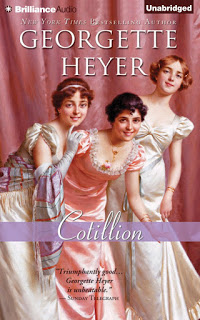
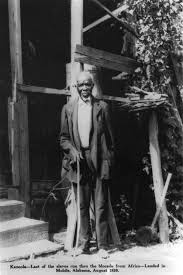
I want tellee somebody who I is, so maybe day go in de Afficky soil some day and callee my name and somebody say, ‘Yeah, I know Kossola.’
Cap’n Tim Meaher come sit on de tree Cudjo just choppee down. I say, now is de time for Cudjo to speakee for his people. We want lan’ so much I almost cry and derefo’ I stoppee work and lookee and lookee at Cap’n Tim. He set on de tree choppin splinters wid his pocket knife. When he doan hear de axe on de tree no mo’ he look up and seeCudjo standin’ dere. Derefo’ he astee me, ‘Cudjo, what make you so sad?’“I tell him, ‘Cap’n Tim, I grieve for my home.’“
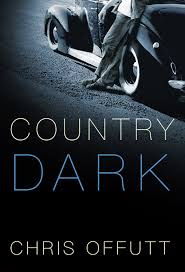
The world appeared for the first time beautiful, the air scoured of dust by the rain, each leaf holding a sheen of water. She could smell the loam and wildflowers, hear the birds braiding their song along the land.
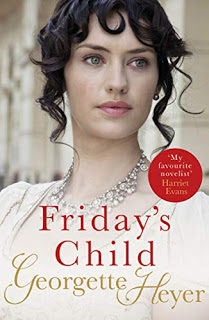
God: God is often conceived as the Supreme Being and principal object of faith. The concept of God as described by theologians commonly includes the attributes of omniscience. . .
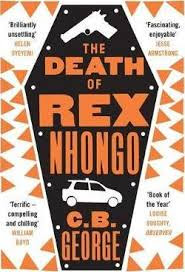
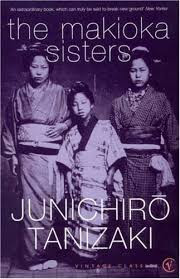
Regarded by many as the finest novel of twentieth century Japanese literature, THE MAKIOKA SISTERS is the story of four sisters in the years leading up to World War II.
It’s really a rather sad book, though based on the plot alone I wouldn’t be able to say why. The plot is: they want to get the two younger sisters married. And I guess it ends happily, with both sisters on their way to the altar. This is the traditional happy ending. But here you go with the bizarrely anti-climatic last line of the book:
Yukiko’s diarrhea persisted through the twenty-sixth, and was a problem on the train to Tokyo.
That gives you the flavour. This book is much less about plot, than it is about all the many ordinary days that make up all our lives between plot points. You meet the love of your life; then you still go to the dentist that afternoon. You still go to work. One day he will propose and on that day you might be wearing tight pants or a kimono that creaks.
Based on my summary above, giving the dates it covers, you’d think it might be a book about politics, but it is almost defiantly not. It’s purely, almost aggressively, about domestic life, and life before the war. Tanizaki was writing it during the war, so my theory is that this is why; he wanted to recreate a world that was already decaying, and that is what gives it is sadness.
The sisters themselves (I am sure not coincidentally) capture this movement from past to future, with the one unmarried sister a classic Osaka lady (which I now know means reserved and delicate), and the other more modern, wearing Western clothes and even having her own business making dolls. The family is going down in the world, and the reason they are struggling to marry is they are overestimate who they can get. At the beginning they decline a perfectly nice man because his mother might be mentally ill; at the end they are glad to accept a guy with no money and a sketchy past.
It’s done with a light hand, but it’s very successful; at the end I was left feeling almost homesick for pre-war Japan. That’s if you exclude all the Beri-Beri. I wasn’t so keen on that. (I had no idea it was such a big issue in Japan. Click here for very interesting history, one of the few where the rich get what they deserve)
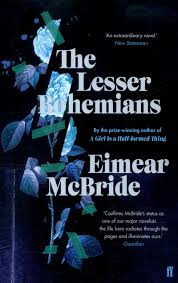
I move. Cars move. Stock, it bends light. City opening itself behind. Here’s to be for its life is the bite and would be start of mine.
Remember. Look up. Like the face of god was lighting me through these grills above, through windows once a churn this hall, and old men watching below.
LaterBreath of winter on me, brain crawling little from drink, I sit where he was with The Devils that nigh and read my book like pub doors are quiet and will not look up for him. Then at my shoulder Women in Love? – stoops to my cheek but gets an earlobe – Thought you’d be long past the Lawrence phase. Well, hello to you too, I lifting my eyes to him, damp and cold-faced from the wind. Have a few in you already? I do. Better catch up, and to the barmaid – rubbing heat in his hands – Two, when you’re ready, and a salt and vinegar please. Come on, that table’s free.
Silent in his room. Cigarette. Sit of shift? I halfly dress. Stay or leave? What do men expect? What would I like? To know exactly what he considers to be the right what now.
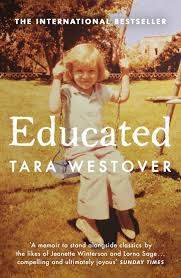
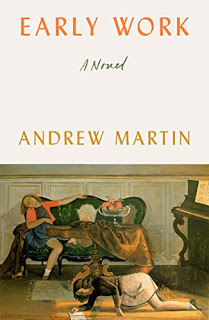
Let’s begin with this book’s beginning:
Like most people trying to get by in something like the regular current of American life, I don’t act like a total asshole to most people I meet, and am generally regarded as pretty nice, mainly because I leave myself vulnerable to hearing out other people’s crises and complaints for longer, on average, than would be merely polite. And the fact is, I do tend to like people in practice, even though I’ve built an airtight case against them in principle. It’s a natural response, I guess, to being raised by relatively kind parents who taught me to be polite and decent and to rely on the company and help of others, but to also consider myself smarter and, on some fundamental level, more deserving of complete fulfillment than anyone in the world besides maybe my sisters.
I mean, how can you not love it already? What a fabulous pair of sentences, packed with interesting ideas, and written in a contemporary voice that remarkably doesn’t seem pretentious. This sets the tone for what is a wonderful book about cheating on your girlfriend. I particularly enjoyed its fun dialogue:
“What do you do, Gil?” I said.
“I work for ThinkBright?” he said “We do design and tech consulting?”
“The Lord’s work,” I said.
I urgently need an opportunity to say this in normal conversation. People are always telling they are bankers and such like. I also liked this:
“Okay, but do you like living in Virginia?” she said pointedly. “Is living in Virginia lowering or heightening your sense of existential dread?”
“My basic status is medium-happy,” I said. “We’ll have to move when Julia gets the next thing, so it’s not useful to analyze it too much. Do I need to have a position? I’m not running for office. I’m not trying to be the president of selfhood.”
And this:
“We’re adults,” I said, the universal marker of childish behaviour. “This doesn’t have to be a big deal.”
It wasn’t just the zippy dialogue I enjoyed (though that’s enough). It was also a thoughtful story about about choosing between two good options, as even while cheating on his girlfriend he continues to really like her:
I still loved Julia. That wasn’t really in question. I had plenty of love. It was, I was realizing, a callous kind of love. That seemed to be all I had to give. Anyone I was with would realize that eventually, I thought, with my feet in the water, so really the goal was to create the illusions of depth for as long as possible. Not for the sex, no. For the company. Other people were interesting, and the more privileged time you had with them the less bored you would be. They would teach you how to live, or at least entertain you while you failed to learn. And it wasn’t entirely selfish, because, to other people, you were someone else, too, someone interesting, even if you knew you weren’t.
And it wasn’t just about romance, either. Both of the women he is involved with are writers, as is he; and one of the more interesting parts of the novel are his efforts to write, at which he is failing. He procrastinates, he deletes, he makes excuses, while both the women who are waiting on him continue to work: they write, and he doesn’t. I found it a striking part of the story; you’d think he has all the power, because frankly he is the one doing the choosing, but somehow he doesn’t; he’s winning in terms of other people, but somehow losing in terms of himself.